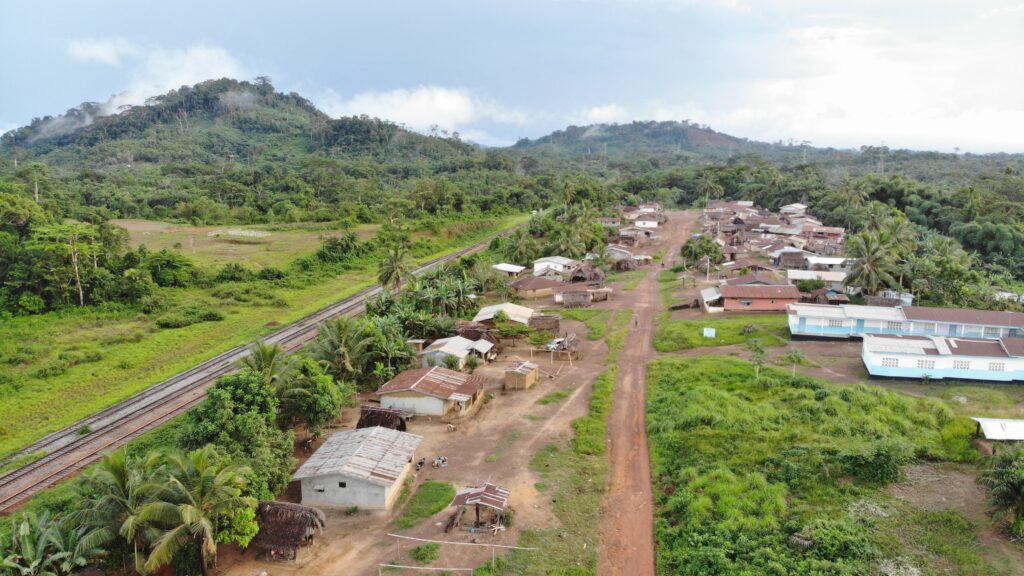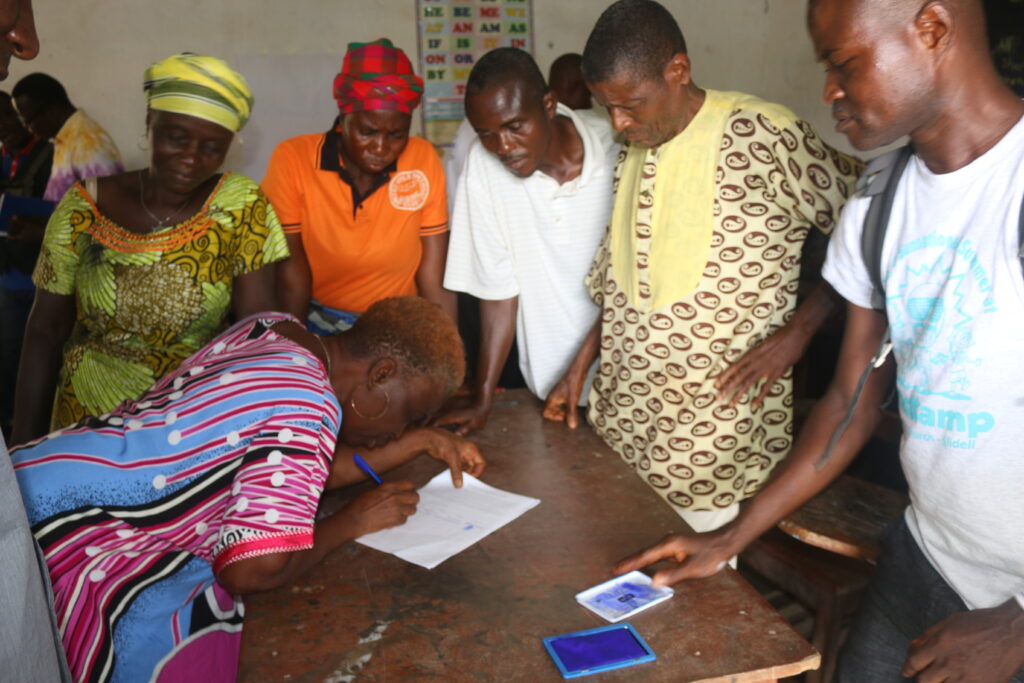Top: The Whorn Waterfall is arguably Quikon’s most famous natural resource. The DayLight/Derick Snyder
By Esau J. Farr
KOKOYAH DISTRICT, Bong County – A clan with a waterfall larger than Kpatawee has consented to a project seeking to assist it get an ancestral land deed.
Located on the boundary between Grand Bassa and Bong County, Quikon Clan hosts the Whorn Waterfall on the St. John River.
For decades, villagers in the clan have protected the fall, the forest around it and the land. They know that acquiring a deed to their clan would formalize their ownership of the land—and everything on it.
With Liberia having passed the Land Rights Act in 2018, the villagers cannot wait to end generations of longing.
“We’ve been bringing people to see [the waterfall] but we don’t have the deed for the land,” said Junior Tarr, the Paramount Chief for Kokoyah District in which Quikon is located. “Once we have a deed, we get the power to say anything to any investor that will come in the district to use that waterfall.”
The Land Rights Act guarantees rural communities ownership of their land, based on customs, norms and oral tradition, for at least five decades. However, communities must go through a legal procedure to get deeds for their land, the technical knowledge they lack.
And that is where civil society organizations come in.
At an event in Rock Crusher, Quikon’s busiest town, the clan officially asked a civil society organization to help it.
“We the citizens and residents of Quikon Clan… hereby declare our free, prior and informed consent (FPIC) for customary community land formalization addressed to Parley Liberia,” locals said in a declaration recently.

That FPIC request to Parley Liberia, a Bong-based organization, recognizes the rights of the clan as an indigenous community, said Josephus Blim, Parley Liberia’s program officer. FPIC aligns with Liberia’s land law and other laws, Blim added. It is a United Nations-backed principle whose roots can be traced to the universal right to self-determination.
Parley Liberia—with other organizations—is assisting 39 communities in eight counties to get their customary deeds. The International Land and Forest Tenure Facility, a Sweden-based charity, provided US$3.54 million for the project over a three-year period.
“The success of this work depends on the community, yourselves, the partnership with government, including the District Commissioner, Paramount Chief, Clan Chief and the Liberia Land Authority,” said Gregory Kitt, executive director of Parley Liberia.

Isaac Freeman, the Acting Superintendent of Kokoyah Statutory District, said the deed would end illegal sales of land there. He said local authorities regularly resolve land disputes.
“We will work with you people so that this thing can be realized,” Freeman told an event marking the signing of the consent declaration. “We have been wishing for someone to come and help our people.”
Isaac Davies, another resident, said people were trading huge plots of land for less valuable materials. Home to some 6,000 people, Quikon is a farming community, covering an estimated 25,000 hectares.
“As a result, we the citizens and youths are beginning to suffer because we are vulnerable,” Davies said. Other townspeople we interviewed echoed his comments.
What Next for Quikon
Quikon must declare itself as a landowning community, communally map the land it claims and cut the boundaries with its neighbors and develop bylaws.
Thereafter, the Land Rights Act requires it to establish a governance body, known as the community land development and management committee (CLDMC).
Then the Land Authority will conduct a survey and give it a customary deed, according to the law.




